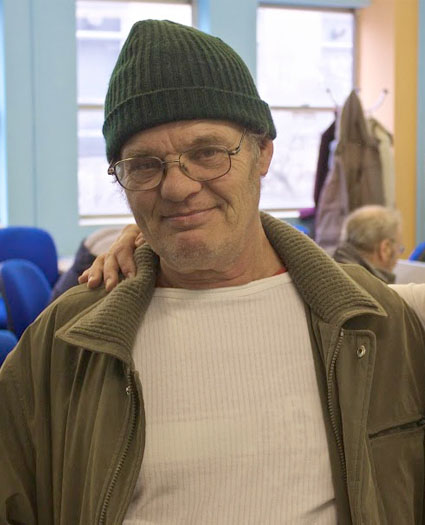This is a guest blog by Helen Milner, Chief Executive of the Tinder Foundation
It’s not often that there’s a win/win NHS story, given the political and practical pressures the service is under day-by-day. If ever there was one though, this is it. And as a fervent NHS supporter, I’m extremely proud to be a part of it.
Digital health may not seem to you to be a core priority for the NHS. But at Tinder Foundation – a leading digital inclusion charity – we’ve proved that it is, or at least that it should be.
Working with NHS England, we’ve just launched a report into a three year programme which aimed to widen participation in digital health, and the results are pretty compelling.
We’ve seen more than 220,000 people trained to use online health tools, 82% of whom experienced at least one form of social exclusion – including unemployment, disability and homelessness. The aim was to target those with least digital experience and most health needs, right in the heart of their communities. Local UK online centres worked with healthcare practitioners to engage and support patients to learn digital health skills.

Ron Dale was able to find the support he needed by getting online.
As a result, 59% of learners reported feeling more confident to use online tools to manage their health, and 65% felt more informed about their health. 52% said they felt less lonely, and 62% reported feeling happier as a result of online social contact – an important indicator for overall wellbeing.
What’s more, 21% are now making fewer calls or visits to their GP, and 6% are making fewer trips to A&E. Critically, this behaviour change is estimated to have saved the NHS £6 million in avoided GP and A&E visits in just 12 months.
Digital health skills, it seems, can improve health outcomes and wellbeing, and relieve pressure on frontline services – driving up quality of care at the same time as driving down costs.
For me, though, it’s the human impact that really tells this story, and has been the biggest ‘win’ of all. So let’s look at some of those 220,000 people in more detail.
Elizabeth
When Elizabeth was diagnosed with vascular dementia in 2013, she began to lose her independence. She wasn’t sure about learning digital skills at first. Now she’s keeping active with online jigsaws, keeping in touch with friends and family via Skype, putting her thoughts down on the computer where she can organise and refer back to them, and sorting through old photographs she wants to preserve.
She said: “My confidence has improved steadily and I’m not scared to take on anything new. When I’m online I feel empowered to take back control over aspects of my life I thought I had lost.”
Sarah
Sarah suffers from depression and anxiety and has just come out of an abusive relationship. She’s recently been diagnosed with Autism and ADHD – part of the picture of her mental health problems. At the point we met her, her trust in health and social care professionals was at an all time low. Online she’s been able to find out more about her condition, and take back some control. She’s felt more informed and more able to participate in plans for her care. She’s paying bills online, keeping in touch with people and services, and sorting out her debt and her benefits.
She said: “I would not understand my condition at all if it wasn’t for online information. It meant a lot to me to find out that I’m not so unusual, and that I’m not alone. I feel like I’m at peace with myself – like I have hope and light at the end of the tunnel.”
Ron
Ron first went into UK online centre Inspire Communities because he was about to be sanctioned by Jobcentre Plus. He was homeless, had a gambling habit, and serious mental health issues. He was living in a tent on the motorway. He was often hungry and cold, and his physical and mental health were going downhill. Part of the problem was that Ron’s relationship with his GP had deteriorated. Online he was able to look at NHS Choices for advice on managing his symptoms, and find a new GP. He registered and made an appointment online without having to run the gauntlet of travel, receptionists, and other patients.
Plugging him back into the healthcare system was key in helping to connect him to the wider support he needed. Now he’s found new housing, taking an active role in his own healthcare, meeting his Jobcentre Plus obligations and dealing with his gambling addiction.
Digital health, you see, really does matter.
In total, there are around 12.6 million people in the UK who don’t have basic digital skills. These are the same people – like Elizabeth, Sarah and Ron – who are most likely to be suffering from poor health.
The fact is that there is a huge crossover between those who are digitally excluded, those who are socially excluded, and those at risk of poor health. The Widening Digital Participation programme has shown how action on the digital front can influence all the others.
You can read more about the programme and download a copy of the report here.
